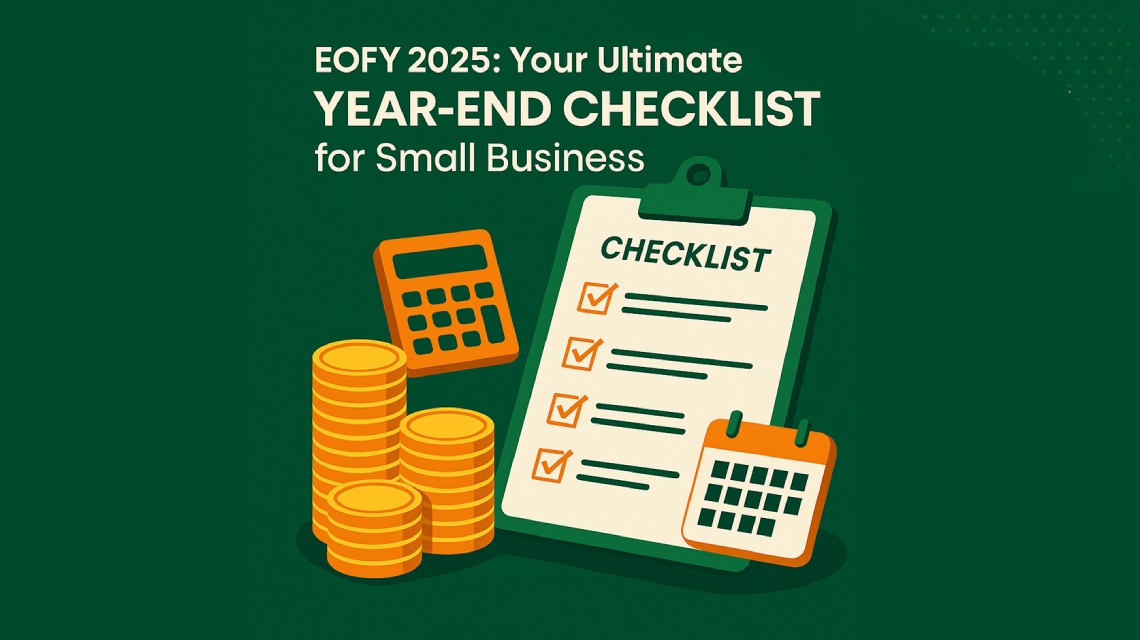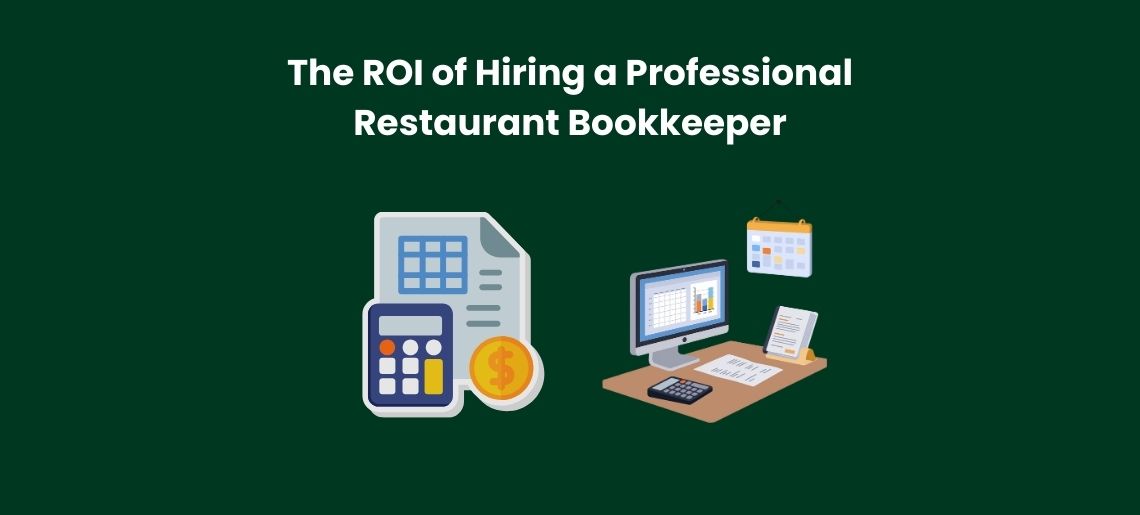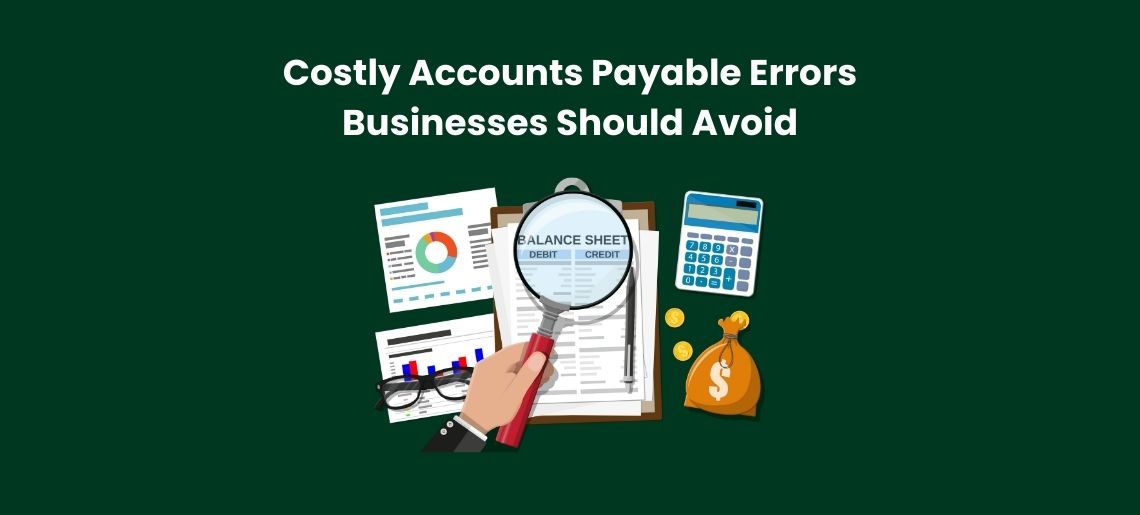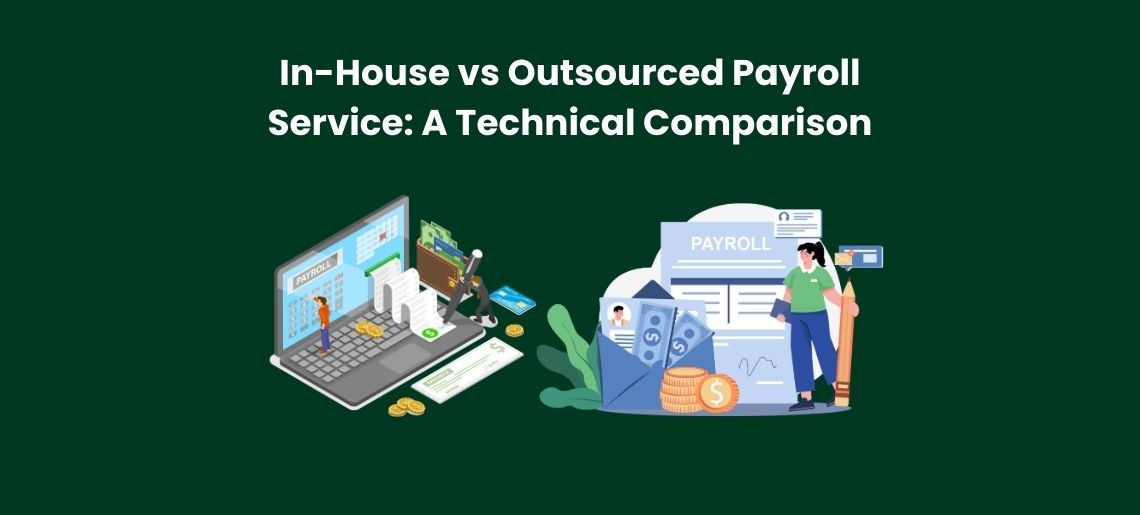
As the end of the financial year (EOFY) gets closer, it’s important for small business owners to start preparing early. EOFY isn’t just about lodging returns; it’s a good time to tidy up your finances, make the most of available deductions, and set your business up for the year ahead.
To help you stay on track, here’s a complete EOFY 2025 checklist tailored to small businesses in Australia.
Understanding EOFY: The Basics
The End of Financial Year (EOFY) is an important time for any business. It marks the end of a 12-month accounting period, when businesses complete their financial records and prepare important reports.
Here’s a quick look at what EOFY involves:
- Finalising: Closing the financial records for the year.
- Reporting: Submitting all required financial documents.
- Planning: Looking at the year’s performance to make future business decisions.
Preparing for EOFY includes tasks like reviewing financial statements, checking accounts, and making any necessary adjustments.
Businesses also use this time to review their finances closely, checking depreciation, expenses, and ensuring all records are accurate and up to date.
EOFY isn’t just about numbers; it’s also a good opportunity to review your business strategies and set goals for the next year.
Why EOFY Matters: Review, Reflect, And Plan For Growth
EOFY isn’t just a date on the calendar; it’s a chance to pause and think about your business.
Look back at the past year: how did your business do? Did you meet your revenue and profit goals? How’s your cash flow? Are there expenses you can reduce or trends you should act on? This is the time to see what’s working and what needs improvement.
Then, look ahead. Whether you want to grow, start new projects, or improve profits, set clear goals for the next financial year. If your current plan isn’t working, EOFY is the perfect time to adjust and refocus.
You don’t have to handle it all alone. Speaking with your accountant can help you see things more clearly and make better choices for your business. EOFY can be more than just a reporting period; it’s an opportunity to make confident, well-informed decisions.
This simple checklist will walk you through key EOFY steps, helping you stay organised and ready for the year ahead..
1. Reconcile Your Accounts
Start by making sure that all your financial accounts are fully up-to-date before 30 June 2025. This includes your bank accounts, credit cards, loans, and online payment accounts like PayPal. Reconciling your accounts means checking that every transaction is recorded correctly and your records match the statements from your bank or service providers.
Here’s what you should do step by step:
- Match Transactions: Go through each transaction in your accounting software and make sure it matches what is shown on your bank, credit card, loan, and PayPal statements. This helps catch mistakes or missing entries early.
- Check for Missing Entries: Look carefully for any transactions that appear in your statements but are not recorded in your books, and add them. This could include bank fees, refunds, or payments received directly into your accounts.
- Clean Up Suspense Accounts: Sometimes transactions get recorded in a “suspense account” if it’s not clear where they belong. Go through these and allocate them correctly to the right category.
Taking the time to reconcile your accounts ensures your financial records are accurate. Accurate records make it easier to prepare year-end reports, identify mistakes early, and understand your business’s financial health. Doing this before EOFY also reduces stress and helps you stay on top of important deadlines.
2. Review Accounts Receivable And Payable
Before EOFY, take the following actions:
- Chase Unpaid Invoices: Follow up on overdue invoices to improve cash flow.
- Write off Bad Debts: If certain debts are uncollectible, consider writing them off.
- Record Unpaid Supplier Bills: Ensure all liabilities are accurately reflected in your accounts.
Proper management of receivables and payables ensures accurate financial statements.
3. Complete Payroll Reconciliation And STP Finalisation
Review gross wages, PAYG, and superannuation for all employees. Finalise your Single Touch Payroll (STP) submission with the ATO to make sure all records are accurate and up to date. Ensure that all superannuation payments are processed before 30 June so they’re included in this financial year’s reports.
4. Maximise Your Deductions
Consider these simple strategies to manage your EOFY spending effectively:
- Prepay Key Costs: Pay upcoming expenses like rent, subscriptions, and insurance early to stay organised and manage cash flow.
- Plan Asset Purchases: Invest in essential business equipment or tools that support operations before 30 June to strengthen your asset base.
- Stocktaking: Review your inventory and clear out old or unused stock to keep your records current.
- Review Business Expenses: Check your work-related costs, such as home office and vehicle use, to make sure they’re properly recorded.
Tip: Rules for asset purchasing thresholds may change after 1 July 2025, so it’s wise to stay informed before making large purchases.
5. Declare Director Loans or Dividends (if applicable)
If your business operates as a company, make sure any director loans and dividends are properly recorded and documented. Clear records help maintain transparency and ensure your financial statements remain accurate and compliant with legal requirements.
5.1 Review Director Loans: Ensure Compliance with Division 7A Rules
Under Division 7A regulations, loans from a private company to its directors or shareholders (or their associates) may be treated as dividends unless specific conditions are met. To ensure compliance:
Establish a Complying Loan Agreement: Prepare a written loan agreement before the company’s financial lodgement deadline. The agreement should include the parties’ names, the loan amount, repayment terms, and an interest rate that meets or exceeds the ATO’s benchmark rate (currently 8.77% for 2025).
Repay Loans on Time: If a complying loan agreement is in place, ensure that the minimum annual repayments are made on time to avoid the loan being treated as a deemed dividend.
Maintain Proper Documentation: Keep records of all transactions, agreements, and repayments related to director loans to substantiate compliance in case of an ATO audit.
5.2 Declare and Minute Any Dividends Issued
Declaring dividends involves a few formal steps, and getting them right helps your company stay compliant and well-documented:
- Board Resolution: The board of directors must pass a resolution recommending the dividend.
- Shareholder Approval: For final dividends, shareholder approval is required at the annual general meeting (AGM).
- Document the Declaration: Ensure that the dividend declaration is minuted in the board meeting minutes and that appropriate entries are made in the company’s financial records.
- Payment Within 30 Days: Once declared, dividends must be paid to shareholders within 30 days to comply with the Corporations Act.
5.3 Document Shareholder Loans: Ensure Proper Documentation
If a company provides loans to its shareholders, it’s essential to:
- Create a Written Agreement: Similar to director loans, shareholder loans should be documented with a written agreement outlining the loan amount, terms, interest rate, and repayment schedule.
- Ensure Compliance with Regulations: Make sure the loan arrangement follows all relevant company and financial compliance rules to avoid it being treated as an undeclared distribution.
- Maintain Records: Keep detailed records of all transactions related to shareholder loans, including agreements, repayments, and communications.
Proper documentation and adherence to company regulations are essential to avoid potential compliance issues.
6. Check Superannuation Obligations
- Q4 Super Guarantee: The super guarantee for the fourth quarter must be paid by 28 July. However, to claim the deduction in the current financial year, ensure payment is made by 30 June.
- Salary Sacrifice Arrangements: Finalise any salary sacrifice arrangements before 30 June.
Timely superannuation contributions help your business stay compliant and show genuine care for your team.
7. Backup and Archive Your Records
- Secure Backup: Ensure all cloud or desktop files are securely backed up.
- Archive Source Documents: Archive receipts, invoices, and contracts for ATO audit protection.
Keeping your records backed up and well-organised helps you stay compliant and makes it easier to find what you need later on.
8. Review Business Performance
EOFY is an excellent time to reflect on your business’s performance:
- Profit and Margins: Assess your profits and margins for the year.
- Expense Management: Evaluate whether your expenses are under control.
- Investment Areas: Identify areas where you should invest in for the upcoming financial year.
Working with your accountant or financial advisor can help you create a clear performance snapshot or simple dashboard that highlights how your business is really tracking.
Bonus Tip: Plan Ahead For Cash Flow And Financial Strategy
Before 30 June, meet with your accountant to review upcoming financial obligations, super contributions, and key business expenses. Discuss strategies such as prepaying costs, taking advantage of available asset write-offs, and structuring director or shareholder loans effectively. Early financial planning gives your business more breathing room, improves cash flow, and strengthens your position for the year ahead, ensuring you start FY26 with clarity, confidence, and better control over your finances.
Final Thoughts
EOFY 2025 doesn’t have to feel overwhelming. With clear organisation and early preparation, you can close the year confidently and set your business up for a stronger FY26. Take this opportunity to review your performance, plan upcoming goals, and tidy up your financial records. A structured approach ensures smoother operations, improved cash flow, and better visibility over your business performance, helping you move into the new financial year with confidence and focus.
We make EOFY simple and stress-free for small business owners. At Elite Plus Accounting, we help you stay compliant, manage reporting, and plan ahead for success. If you need expert guidance to prepare for FY26, reach out to us at info@eliteplusaccounting.com.au or call 1300 744 733. We’re here to help your business stay on track.








